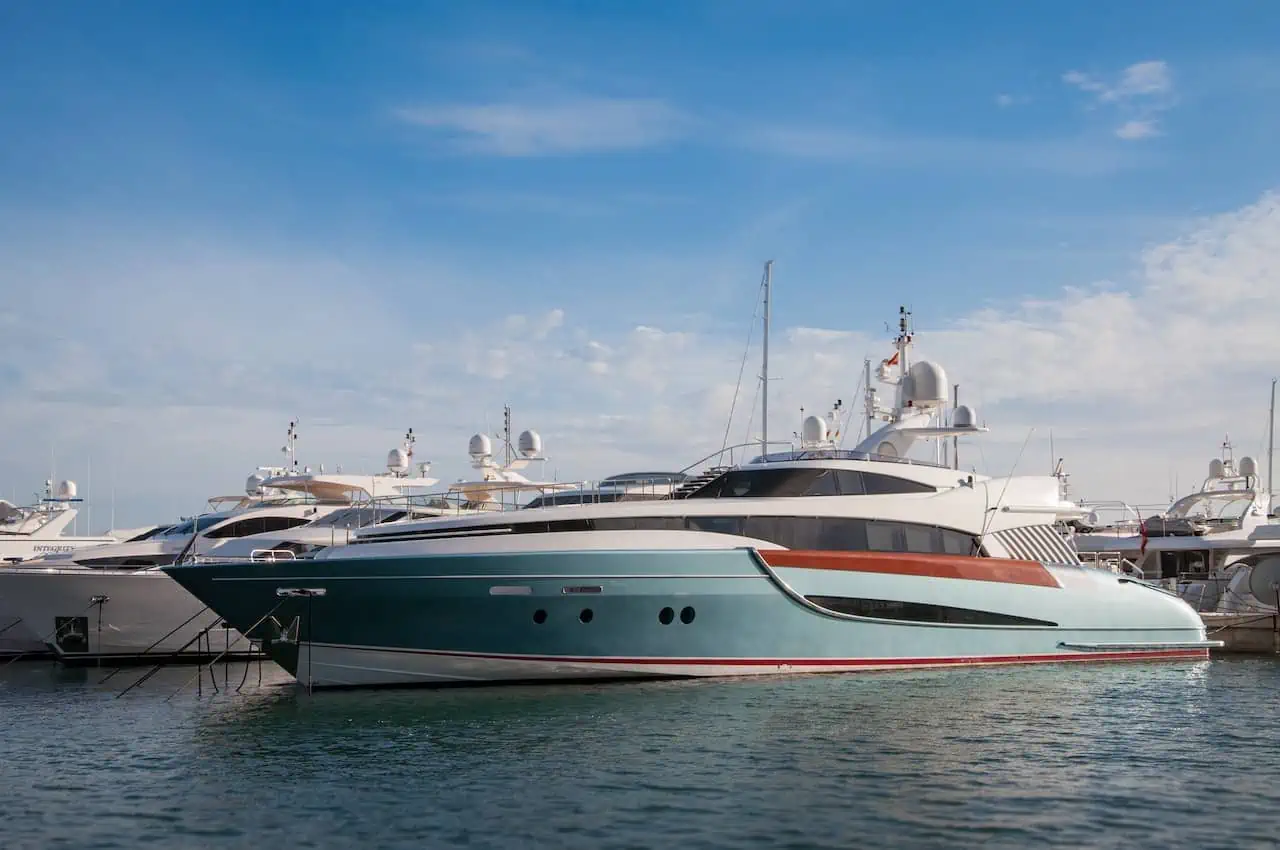Thinking about buying your first yacht and sailing UK waters? Yacht ownership is an exciting lifestyle, but there are important considerations to keep in mind before taking the plunge.
In this comprehensive guide, we will outline everything new yacht owners need to know about selecting the right vessel type, registration requirements, insurance basics, essential onboard safety gear, and evaluating if full ownership is the best fit.
By understanding your responsibilities upfront and doing thorough research, your journey can begin smoothly on UK’s spectacular coastlines and inland waterways.
What Are the Different Types of Yachts
With so many beautiful yachts dotting the UK coastline and ports, you may be considering yacht ownership yourself. But with different vessel styles to choose from, where do you start? The most common types are sailboats and motor yachts. Sailboats harness wind power through sails while motor yachts rely on engines.
Sailboats come as monohulls or multihull catamarans/trimarans. Monohull sailboats like sloops offer stability in various conditions whereas catamarans provide more interior space but weaker stability. Motor yachts also differ – planing motor yachts move faster at higher speeds. Displacement motor yachts are slower and more stable.
Choosing the right type depends on your needs like space, speed and handling preferences.
What Do You Need as A New Yacht Owner in UK?
Before buying a yacht in the UK, ensure you understand the responsibilities of ownership. Budget for the purchase price, ongoing maintenance costs, winter storage, upgrades and repair work.
Most importantly, arrange suitable Yacht insurance that covers hull damage, third party liability and crew injury. Also consider slipway/mooring fees if keeping the yacht in the water.
You’ll need qualifications too – many marinas require RYA Day Skipper or Coastal Skipper certification depending on the yacht’s size and where you plan to sail it.
Ownership registration involves classifying the yacht, safety equipment surveys and following local maritime authority regulations. Doing sufficient research beforehand will help smooth your arrival as a new UK yacht owner. Here you can find more information.
Registration Requirements in the UK
All recreational vessels over 13 metres must be registered with the Maritime and Coastguard Agency (MCA). You’ll need to provide ownership details, Yacht classification by size/use and proof of a unique MCA certificate number. Vessels under 13 metres may optionally register for a UK Recreational Craft Directive Compliance Plate.
Insurance and safety equipment are mandatory too – every yacht must hold a valid Ship Radio License if fitted with radio equipment. Emergency positioning systems, life jackets, distress signals, first aid kits and firefighting gear are some essential gear. Finally, submitting your yacht for an initial safety survey inspection is critical to receive the Certificate of Compliance required to legally sail UK waters.
Yacht insurance in the UK
Choosing the right bespoke yacht insurance policy is vital for your peace of mind and legal requirements as an owner. Core coverage includes hull damage insurance to repair physical harm, third party liability insurance to protect against claims for injury/damage caused to others, and medical payments for crew injuries aboard.
Additional coverage options may include salvage/wreck removal, sailing outside UK territorial waters, transit policies and extending machinery breakdown cover. Go for annually renewable policies through experienced marine insurers. Comparing rates based on yacht specifications helps find policies suited to your needs and budget. In short – never set sail without adequate protection in place.
What Must You Have On Your Boat?
Safety is paramount in yachting, so ensure your vessel adheres to gear carriage requirements. Equip life rafts or dinghies to abandon ship in emergencies. Always carry marine jackets, harnesses, flares and other visual distress signals for every person aboard.
Navigation lights, inland radio, charts and navigation equipment make sure you can safely pilot your yacht day or night. Important tools and spares for repairs along with proper first aid and medication kits are smart additions too. Fire protection supplies like extinguishers and blankets guard against the risk of onboard blazes.
Stow all equipment and secure loose items to avoid damage or injury from unexpected movement. Label switches clearly and consider safety equipment inspections every season. A well-prepared yacht will let you relax and enjoy your time on the water.
Is Yacht Ownership a Good Idea?
Owning a recreational yacht can seem like a delightful luxury, but is not without responsibilities. Careful consideration of your objectives, lifestyle and long term plans is key. Leisurely day sailing or living aboard full time require vastly different vessels and commitments in time and money.
Yacht maintenance never stops, and repairs can become unexpectedly costly. Ensuring adequate financing, insurance policies and seamless record keeping as an owner is essential. Shared ownership with family/friends or a yacht club membership are options providing flexibility for those unsure of complete ownership.
On the plus side, yachting fosters camaraderie and adventure. Cruising the UK coast and fishing trips create lifetime memories. Appreciating resale values can offset costs. For dedicated owners willing to invest in this rewarding hobby, the lifestyle and access to UK’s waterways are undoubtedly worth it.
Final Thoughts
Owning a yacht in the scenic British coastal and inland scenery is a privilege that also demands responsibility. Proper homework, gradual skill building and honest assessment of long term commitment are pre requisites for smooth boating.
An open-minded approach centered around safety, welfare of crew and environmental stewardship will help enjoy this pastime sustainably for years to come. With prudent planning and maintenance, your yacht can deliver countless days of enjoyment on UK’s beautiful waters.
